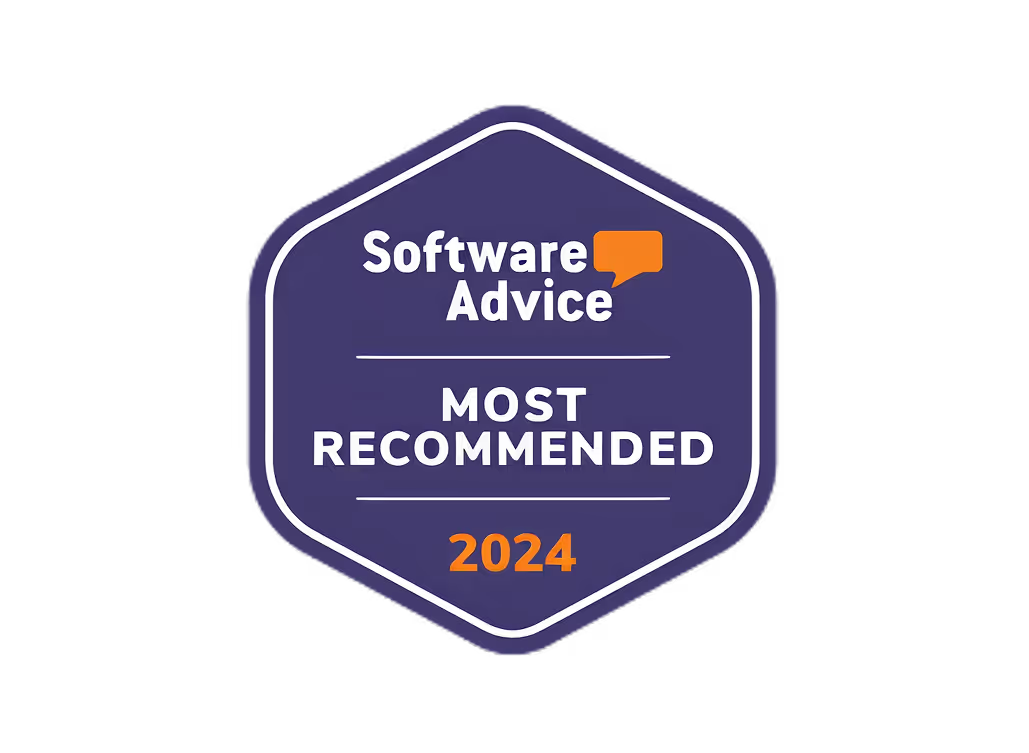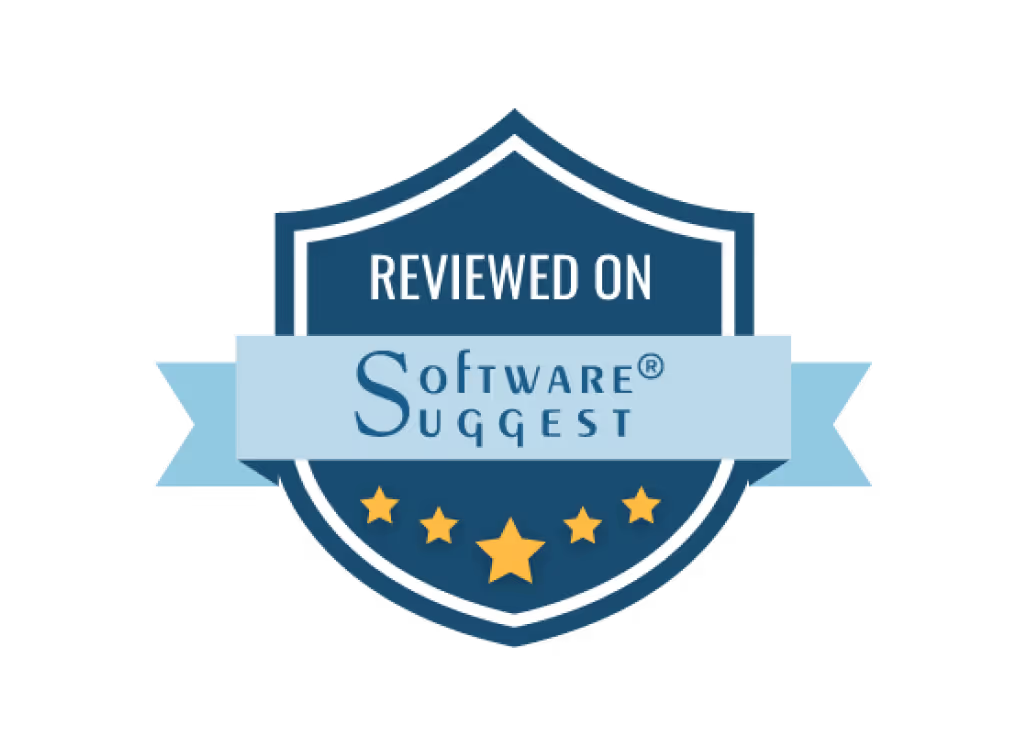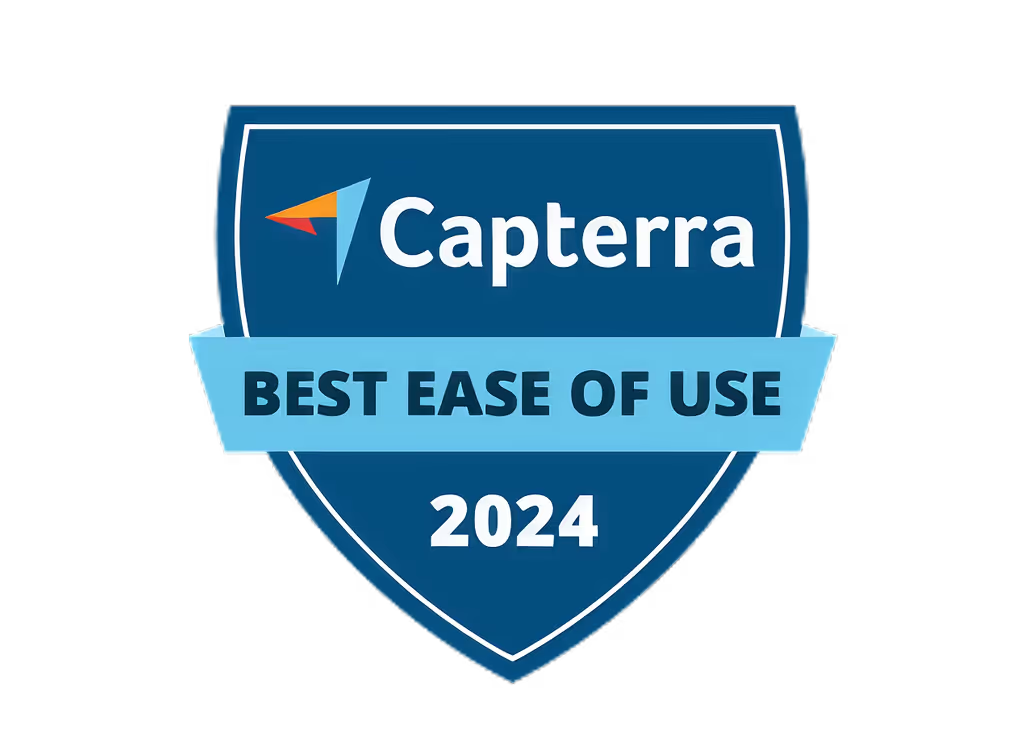Unlocking Growth: Your Guide to Choosing the Best Digital Marketing Agency for Startups in 2025

Ever feel like your startup is shouting into a void? You’ve got a great idea, but getting people to notice feels like an uphill battle. In 2025, cutting through the noise is key, and that’s where smart digital marketing for startups comes in. It’s not just about having a website; it’s about connecting with the right people and showing them why you matter. This guide will help you figure out how to do just that, even if your budget is tight. We’re going to look at what really works to get your startup seen and growing.
Key Takeaways
- Before you start spending money, get clear on what you want to achieve with your marketing. Set specific goals and figure out how you'll measure if you're hitting them.
- Understand exactly who you're trying to reach. Knowing your ideal customer helps you create messages and choose platforms that actually connect with them.
- Figure out what makes your startup special. This unique selling point needs to be clear in all your marketing efforts.
- Focus on services like SEO, paid ads, content, and social media that can really help your startup get noticed and grow.
- When looking for a digital marketing agency for startups, check if they understand your business, can show you past successes, and use data to make decisions.
Defining Your Startup's Digital Marketing Foundation
Setting SMART Goals and Key Performance Indicators
Before you even think about posting on social media or running ads, you need to know what you're trying to achieve. "Get more customers" is a nice thought, but it's not a plan. We need to get specific. Think about goals that are SMART: Specific, Measurable, Achievable, Relevant, and Time-bound. For example, instead of "increase sales," aim for "increase website conversion rate by 15% in the next quarter." This gives you something concrete to work towards.
Key Performance Indicators (KPIs) are how you'll track if you're hitting those goals. For a startup, these aren't just about likes or shares (though those can be nice). They're about what actually moves the needle for your business.
Here are some startup-focused KPIs to consider:
- Website Traffic: How many people are visiting your site?
- Conversion Rate: What percentage of visitors take a desired action (like signing up or buying)?
- Customer Acquisition Cost (CAC): How much does it cost to get a new customer?
- Customer Lifetime Value (CLTV): How much revenue does a customer generate over their entire relationship with you?
- Lead Generation: How many potential customers are you capturing?
Focusing on these metrics helps you understand what's actually working and where your marketing budget is best spent. It stops you from chasing vanity metrics that don't contribute to real business growth.
Understanding Your Target Audience
Who are you actually trying to reach? If you think "everyone," you're probably reaching no one effectively. You need to get a clear picture of your ideal customer. What are their problems? What are their needs? Where do they hang out online? What kind of language do they use?
Think about creating buyer personas. These are semi-fictional representations of your ideal customers based on research and data. Give them names, jobs, interests, and pain points. This makes it much easier to tailor your marketing messages and choose the right channels.
For instance, if you're selling a B2B software solution, your audience might be busy IT managers. They're likely looking for efficiency, cost savings, and solutions to specific technical challenges. They might be active on LinkedIn and read industry blogs. If you're selling a trendy fashion item, your audience might be younger, active on Instagram and TikTok, and interested in style, trends, and social proof.
Establishing Your Unique Value Proposition
What makes your startup different and better than the competition? This is your Unique Value Proposition (UVP). It's the core reason why a customer should choose you. It's not just about having a good product; it's about how you communicate its benefits and what makes you stand out.
Your UVP should be clear, concise, and compelling. It needs to answer the customer's question: "What's in it for me?" It should highlight the specific benefit or solution you provide that others don't, or that you do better.
Consider these points when defining your UVP:
- Problem Solved: What specific pain point does your product or service address?
- Key Benefit: What is the main advantage a customer gains by using your offering?
- Differentiation: What makes you unique compared to alternatives?
For example, a meal kit service might have a UVP like: "Healthy, chef-designed meals delivered to your door in 30 minutes, with zero food waste." This clearly states the benefit (healthy, convenient meals), the target (busy individuals), and a differentiator (zero food waste).
Getting these foundational elements right is like building a strong base for a house. Without it, any marketing efforts you make later might not stand up to the test.
Key Digital Marketing Services for Startup Growth

Getting your startup noticed in today's crowded online space isn't just about having a great product; it's about smart, targeted marketing. For early-stage companies, especially, it's easy to feel overwhelmed by all the options. But focusing on a few core services can make a huge difference in building momentum and attracting those first crucial customers. Think of these as your growth engines.
Search Engine Optimization for Organic Reach
This is all about making sure people find you when they're actively searching for what you offer. When someone types a question or a product name into Google, you want your website to show up. It’s a long game, but the traffic you get from SEO is often highly qualified and converts well because people are already looking for a solution. Focusing on local visibility through professional SEO services in USA can significantly improve your chances of reaching nearby customers who are actively searching for what you offer.
- Keyword Research: Figure out what terms your potential customers are actually typing into search engines. Tools like Google Keyword Planner can help, even the free versions.
- On-Page Optimization: This means making sure your website content, titles, and descriptions are clear, relevant, and use those keywords naturally.
- Technical SEO: Making sure your website is fast, mobile-friendly, and easy for search engines to crawl. No one likes a slow or broken website.
- Content Creation: Regularly publishing helpful articles, guides, or blog posts that answer your audience's questions. This signals to search engines that you're a valuable resource.
Organic search traffic is like a steady stream of potential customers who are already interested in what you do. It takes time to build, but it's incredibly cost-effective over the long run.
Paid Advertising for Immediate Visibility
While SEO builds for the future, paid ads give you a quick boost. You can get your message in front of a very specific audience almost instantly. The trick for startups is to be super focused and not waste money.
- Platform Selection: Decide where your audience hangs out. Google Ads for search intent, social media ads (like Facebook, Instagram, LinkedIn) for demographic targeting. For B2B, LinkedIn is often a good bet. For visual products, Instagram or TikTok might be better.
- Targeting: This is where paid ads shine. You can target by location, age, interests, job titles, and more. The more precise you are, the less money you waste.
- Ad Copy & Creatives: Your ads need to grab attention and clearly state your offer. Test different versions to see what works best.
- Budget Management: Start with a small, manageable budget. Track your results closely and only increase spending on campaigns that are proving profitable.
The goal with paid ads is to get in front of the right people, right now, and learn quickly what messaging works.
Content Marketing to Build Authority
Content marketing is about creating and sharing useful, relevant information to attract and keep a clearly defined audience. It's not just about selling; it's about becoming a trusted source. This builds brand loyalty and positions you as an expert in your field.
- Blog Posts: Regular articles that address customer pain points and questions. Optimize them for SEO.
- Guides & Ebooks: More in-depth resources that can be offered in exchange for email sign-ups, helping you build your list.
- Videos: Short, authentic videos explaining your product, sharing tips, or showing behind-the-scenes can be very effective. You don't need a Hollywood budget; a smartphone often works fine.
- Infographics: Visually appealing ways to present data or complex information.
Think of content as your 24/7 salesperson. It works to attract, educate, and convert potential customers even when you're not actively engaging them.
Social Media Engagement Strategies
Social media is more than just posting pretty pictures. It's about building a community around your brand. It’s where you can have real conversations with your audience, get feedback, and show off your brand's personality.
- Choose Your Platforms Wisely: Don't try to be everywhere. Focus on the 1-2 platforms where your target audience spends the most time.
- Engage, Don't Just Broadcast: Ask questions, run polls, respond to comments (both good and bad), and join relevant conversations.
- Authenticity is Key: People connect with realness. Share behind-the-scenes content, introduce your team, and be genuine.
- User-Generated Content (UGC): Encourage your customers to share their experiences with your product or service. This is powerful social proof.
Consistency is more important than frequency. A regular presence, even if it's just a few times a week, is better than sporadic bursts of activity.
Evaluating Potential Digital Marketing Agencies
So, you've got your goals sorted and you know who you're trying to reach. Now comes the big step: finding the right agency to help you get there. It’s not just about picking the first name you see; it’s about finding a partner who truly gets your startup and can deliver results. Think of it like hiring someone for your core team – you want someone skilled, reliable, and who fits the culture.
Assessing Agency Expertise and Specialization
First off, does the agency actually know what they're doing, especially in areas that matter most to you? If your startup lives and breathes B2B SaaS, you probably don't want an agency that primarily works with local bakeries, even if they do great social media for them. Look for agencies that have a track record in your specific industry or with the services you need most. Some agencies are generalists, which can be fine, but others have deep specializations, like SEO for tech companies or paid ads for e-commerce. It's worth asking them directly about their experience and if they have team members who are true pros in your niche. You want to see that they understand the unique challenges and opportunities your business faces.
Reviewing Case Studies and Client Testimonials
This is where you get the real dirt. Case studies are like a portfolio for agencies. They should show you actual projects they've worked on, the problems they solved, and, most importantly, the results they achieved. Don't just look at the big numbers; try to understand the context. Did they help a company similar to yours? Were the results measurable and significant? Client testimonials are also super important. Look for patterns in what clients say. Are multiple clients mentioning great communication, or are there recurring complaints about missed deadlines? Platforms like Clutch can be a good place to start, but don't stop there. Ask the agency for references you can speak to directly. Hearing firsthand experiences can tell you a lot about what it's like to work with them.
Understanding Their Data-Driven Approach
Marketing today is all about data. A good agency won't just throw ideas at the wall and see what sticks. They'll have a clear process for tracking performance, analyzing results, and using that information to make smarter decisions. Ask them how they measure success for campaigns. What tools do they use? How often will you get reports, and what will those reports actually tell you? You want an agency that can explain the 'why' behind their strategies and show you how they're adjusting based on performance data. This kind of transparency is key to building trust and ensuring your marketing budget is being spent effectively. It's about making informed choices, not just guessing.
The best agencies don't just execute tasks; they act as strategic partners. They should be able to explain their reasoning, show you the data supporting their decisions, and adapt their approach as your business evolves. This collaborative spirit is what separates good from great.
Here's a quick checklist to help you evaluate:
- Industry Experience: Do they have a history of success in your sector?
- Service Alignment: Do their core services match your primary needs (e.g., SEO, PPC, content)?
- Client Feedback: What do past and current clients say about their performance and working relationship?
- Reporting Clarity: Can they provide clear, regular reports with actionable insights?
- Communication Style: Do they communicate openly and frequently?
When you're looking at an agency's financial health, consider factors like their revenue streams and operational efficiency. Understanding their valuation can give you a sense of their stability and growth potential, which is important for a long-term partnership.
The Role of Technology in Modern Marketing

Leveraging AI for Efficiency and Insights
Okay, so AI. It’s everywhere, right? For startups, it’s not just a buzzword; it’s becoming a real game-changer. Think of it as your super-smart assistant that can handle a lot of the grunt work so you can focus on the big picture. AI tools can help you whip up content ideas, draft social media posts, or even summarize long reports. They’re also getting really good at spotting patterns in your marketing data that you might miss. This means you can figure out what’s actually working and what’s just a waste of time, faster than ever before. Plus, AI can help make your marketing feel more personal to each customer, which is a big deal these days.
The key is to use AI smartly. Don't just adopt it because it's trendy. Figure out exactly where it can save you time or make you money, and start there. It’s about making your marketing smarter, not just more complicated.
Integrating Marketing Technology Stacks
Remember when marketing tech was just a bunch of separate tools – one for email, one for social media, another for tracking website visitors? Well, that’s changing. The trend now is towards more connected systems, often called a MarTech stack. These integrated systems work together, sharing information. This makes everything run smoother and gives you a clearer view of your customer. Instead of data being siloed in different apps, it flows together, helping you understand your audience better and make more informed decisions. It’s like having all your marketing tools talking to each other.
Here’s a quick look at what a connected stack might involve:
- Customer Relationship Management (CRM): Keeps track of all your customer interactions.
- Marketing Automation: Handles repetitive tasks like sending emails or scheduling posts.
- Analytics Tools: Measures performance and provides insights.
- Content Management System (CMS): Organizes and publishes your content.
The Power of Video Content and Short-Form Media
If you’re not using video, you’re probably missing out. Especially short-form videos. Think TikTok, Instagram Reels, YouTube Shorts. These platforms are huge right now, and they offer a really cost-effective way to get your brand in front of a lot of people. You don’t need a Hollywood budget to make good videos. Often, authentic, behind-the-scenes looks at your product or company culture do really well. People connect with that realness. Plus, studies show that video can really help boost sales and get people to take action.
- Authenticity: Show the real you, your team, and your product.
- Education: Teach your audience something useful related to your industry.
- Engagement: Ask questions, run polls, and interact with comments.
- Behind-the-Scenes: Give people a peek into your company's day-to-day.
Building a Collaborative Agency Partnership
Working with a digital marketing agency isn't just about handing over tasks; it's about building a real partnership. Think of them as an extension of your own team, people who understand your vision and are invested in your success. This kind of collaboration makes a huge difference in how effective your marketing efforts will be.
Ensuring Clear Communication and Reporting
Good communication is the bedrock of any successful partnership. You need to know what's happening with your campaigns, and the agency needs to understand your feedback and any changes in your business. Regular check-ins are a must. This could be weekly calls, bi-weekly meetings, or whatever works best for both sides. The key is consistency and openness.
When it comes to reporting, it shouldn't just be a dump of numbers. A good agency will present data in a way that's easy to understand and shows you what's working, what's not, and why. They should be able to explain the key performance indicators (KPIs) that matter most to your startup's goals.
Here’s a look at what a typical reporting structure might include:
- Key Metrics: Website traffic, conversion rates, cost per acquisition (CPA), return on ad spend (ROAS).
- Channel Performance: How each marketing channel (e.g., SEO, paid ads, social media) is performing.
- Campaign Insights: What specific campaigns are driving results and what lessons can be learned.
- Actionable Recommendations: What steps will be taken next based on the data.
Transparency in reporting builds trust. When an agency is upfront about performance, even when it's not perfect, it shows they're committed to honest collaboration and continuous improvement.
Finding an Agency That Acts as an Extension of Your Team
An agency that truly gets your startup will feel like part of your internal team. They'll take the time to learn about your company culture, your product or service, and your long-term objectives. This deeper understanding allows them to create marketing strategies that are not just effective, but also aligned with your brand's voice and values.
Look for an agency that:
- Asks lots of questions: They should be curious about your business, your customers, and your competitors.
- Is proactive: They don't just wait for you to tell them what to do; they suggest new ideas and strategies.
- Offers flexible solutions: They can adapt their approach as your startup grows and your needs change.
- Provides dedicated points of contact: You should have a go-to person or small team who knows your account inside and out.
Measuring Return on Investment and Campaign Success
Ultimately, marketing is about driving business results. You need to be able to see the impact of the agency's work on your bottom line. This means clearly defining what success looks like from the outset and agreeing on how it will be measured.
The most important question to ask is: "How will this marketing activity help us achieve our business goals?"
This involves tracking metrics that directly relate to revenue, customer acquisition, and overall business growth. It's not just about likes or shares; it's about tangible outcomes. An agency that focuses solely on vanity metrics without connecting them to business objectives might not be the right fit for a startup looking for real growth.
Budget-Conscious Strategies for Early-Stage Ventures
Starting a business is tough, and let's be honest, money is usually tight. You've got a great idea, maybe even a working product, but getting the word out without a huge marketing budget can feel like trying to win a race with one shoe. It's totally doable, though. Luckily, you can attract investors who can support financially your startup and it's easier to convince them in the support if you turn to presentation design agency like Whitepage who can make a perfect pitch deck. The trick is to be smart about where you put your limited resources. We're not talking about fancy, expensive campaigns here. Instead, we'll focus on getting the most bang for your buck.
Prioritizing High-Impact Channels
When you're just starting, you can't afford to throw money at every shiny new marketing trend. It's way more effective to figure out which channels are actually going to bring in customers. Think about where your ideal customers spend their time online. Are they on LinkedIn, scrolling through Instagram, or searching on Google? Focus your efforts there. It's better to do a really good job on one or two channels than a mediocre job on five.
- Identify your core audience: Really dig into who you're trying to reach. What are their problems? Where do they look for solutions?
- Test small: Before committing a lot of cash, run small, targeted tests on different platforms. See what gets a response.
- Track everything: Use simple tools to see which efforts are actually leading to sales or sign-ups. This is key to knowing what's working.
- Double down on winners: Once you find a channel that's performing well, put more effort and budget into it. Don't be afraid to cut back on things that aren't producing results.
The most effective channels will vary based on your industry, target audience, and business model. It's about finding your specific sweet spot.
Utilizing Free and Low-Cost Tools Effectively
Good news! You don't need a massive budget to have powerful marketing tools. There are tons of free or really affordable options out there that can make a big difference. For example, tools like Canva can help you create decent-looking graphics without hiring a designer. Google Analytics is free and gives you a ton of information about your website visitors. Even social media platforms have built-in scheduling tools that save you time. You can also build a solid email list using services that offer free plans for smaller lists. It’s about being resourceful and using what’s available.
Smart email marketing for startups turns subscribers into customers, and customers into advocates. It’s a direct line to people who have already shown interest in what you offer.
Exploring Micro-Influencer Marketing Opportunities
Forget those mega-celebrities; they're way too expensive for most startups. Micro-influencers, on the other hand, have smaller but often more engaged followings. They tend to have a more personal connection with their audience, which means their recommendations can feel more genuine. Finding a few micro-influencers whose audience matches yours can be a cost-effective way to get your product or service in front of new people. It’s about building relationships with people who genuinely like what you do and are happy to share it. You can often work out deals that are more budget-friendly than traditional advertising, sometimes even involving product exchanges. This approach can be a great way to build trust and generate authentic buzz. You can find these influencers by searching relevant hashtags on platforms like Instagram or TikTok. It's a good idea to check out their engagement rates and see if their audience seems like a good fit before reaching out. This is a great way to build a marketing budget that works for you.
Your Startup's Digital Marketing Journey Starts Now
So, picking the right digital marketing agency for your startup in 2025 might feel like a big step, but it's totally doable. It’s not just about finding someone to run ads; it’s about finding a partner who gets your vision and can help you connect with the people who need what you offer. Remember to look for folks who show you real results, understand your specific goals, and communicate clearly. Don't get caught up in fancy words or promises that sound too good to be true. Focus on what makes sense for your business right now. Start small, learn as you go, and build on what works. The digital world is huge, but with the right help, your startup can definitely find its place and grow.
Frequently Asked Questions
Why is it important for startups to have a good digital marketing plan?
Think of digital marketing as your startup's megaphone in the online world. Without it, it's hard for people to find you and learn about your cool products or services. A good plan helps you reach the right customers, build excitement, and grow your business so you don't get lost in the crowd.
What are SMART goals, and why should my startup use them?
SMART goals are like a recipe for success. They're Specific (clear what you want), Measurable (you can track it), Achievable (realistic), Relevant (helps your business), and Time-bound (has a deadline). Using them helps you focus your efforts and see if your marketing is actually working, instead of just hoping for the best.
How can a digital marketing agency help a small startup?
An agency is like having a team of marketing experts on your side. They know all the tricks for getting noticed online, like SEO and ads. They can save you time and help you avoid mistakes, making sure your marketing money is spent wisely to get the best results for your startup.
What's the difference between SEO and paid ads?
SEO (Search Engine Optimization) is like making your website super attractive so search engines like Google show it to people looking for what you offer, for free. Paid ads, like Google Ads, are like paying to have your business shown to people right away. Both are important, but they work in different ways.
Is video content really that important for startups?
Yes, video is super popular! Especially short videos on places like TikTok or Instagram. They're a fun and easy way to show off your product, tell your story, and connect with lots of people without costing a fortune. It's a great way to get noticed quickly.
How can startups with small budgets still do effective digital marketing?
It's all about being smart! Focus on the channels that give you the most bang for your buck, like content marketing or reaching out to smaller influencers who have dedicated fans. Using free tools and being creative can go a long way. It’s not about how much you spend, but how well you spend it.

















